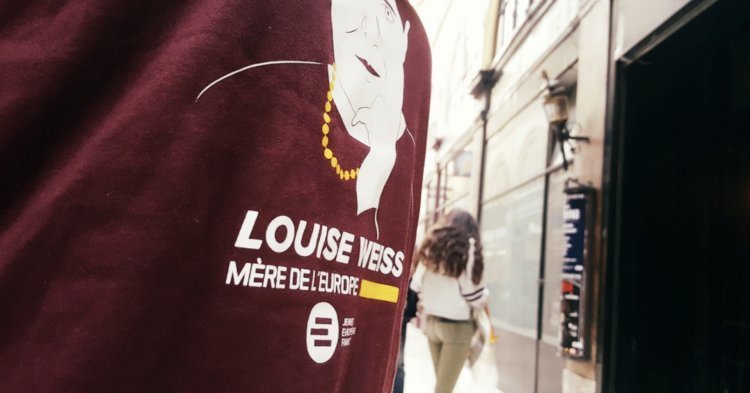Have you ever noticed that at school, in books, in newspapers or debates, we almost always hear and use the famous “fathers of Europe” term? It refers to male personalities that shaped our land and our relations with third countries. In light of this recurrence, we have to ask ourselves this legitimate question: has there never been a mother of Europe in European modern history?
Actually, a large bright courtyard named after Louise Weiss is situated at the heart of the European Parliament in Strasbourg. The institution has decided to pay a special tribute in this central and symbolic place, not to Robert Schuman or Jacques Delors, but to one of the most famous female figure of European construction’s history. Working as a nurse during the First World War, she became a journalist afterwards and then member of the European Parliament from 1979 to 1983, Louise Weiss devoted her whole life to promoting peace and cooperation between countries, as well as women’s rights in Europe. In Mémoires d’une Européenne (The Memories of an European), she especially writes about her commitment for a Europe more united and more respectful of gender equality. These two causes have truly punctuated her life and made her a mother of Europe.
What is the identity of this committed woman, often unsung and hidden behind the dominant figures of the fathers of Europe?
From a very young age, Louise Weiss started to be interested in international relations. In the wake of the First World War, she created the French and international political journal L’Europe nouvelle (The New Europe) in which she talks about her wish for pacifism and possibilities for European countries to reconcile (especially France and Germany) in order to avoid a new war. We now consider that these were the first thoughts on the creation of a European Union. Louise Weiss was also a feminist and a few years later she founded her own movement, La Femme nouvelle (The New Woman), through which she campaigned for the right to vote for women in France.
The names she chose show her belief for a revived Europe and feminism, though the League of Nations was struggling, and Second World War was coming. For the young Alsatian, Europe was going to rise again from its ashes, and living together would eventually become Europe’s watchword. Her battle took a new turn when she became a member of the Resistance during World War II. As moved by her fear to relive war’s horrors, she decided to resist the enemy and to carry out her fight for peace until the end. As a journalist, she attended the Nuremberg trials between 1945 and 1946.
Her commitment for European construction did not weaken with war ending, it was actually quite the contrary. In 1971, she founded the Institute of Peace Sciences in Strasbourg, as well as her own foundation which rewards personalities who have actively contributed to European unity and to the development of peace sciences (Simone Weil and Helmut Schmidt among others).
Louise Weiss’ glory reached a peak in 1979, when she became a member of the European Parliament in Strasbourg, aged 86. As the elder, she delivered an opening speech for the Parliament’s first session. One of the most important female figures of European construction had obtained the ultimate recognition of her political work, paving the way for other women to become her worthy successors.
The European Parliament did not choose Louise Weiss’ name randomly to honour its main building: the institution considered her as the allegory of European and feminist values that are still essential for our territory. Or maybe was it because the activist was very fond of the Alsatian city where the Parliament sits? At least it seems like what Louise Weiss’ famous sentence means: “It is in Strasbourg that the European spirit is the most open and the purest”.
This article was first published in French in Voix d’Europe.



Follow the comments: |
|
